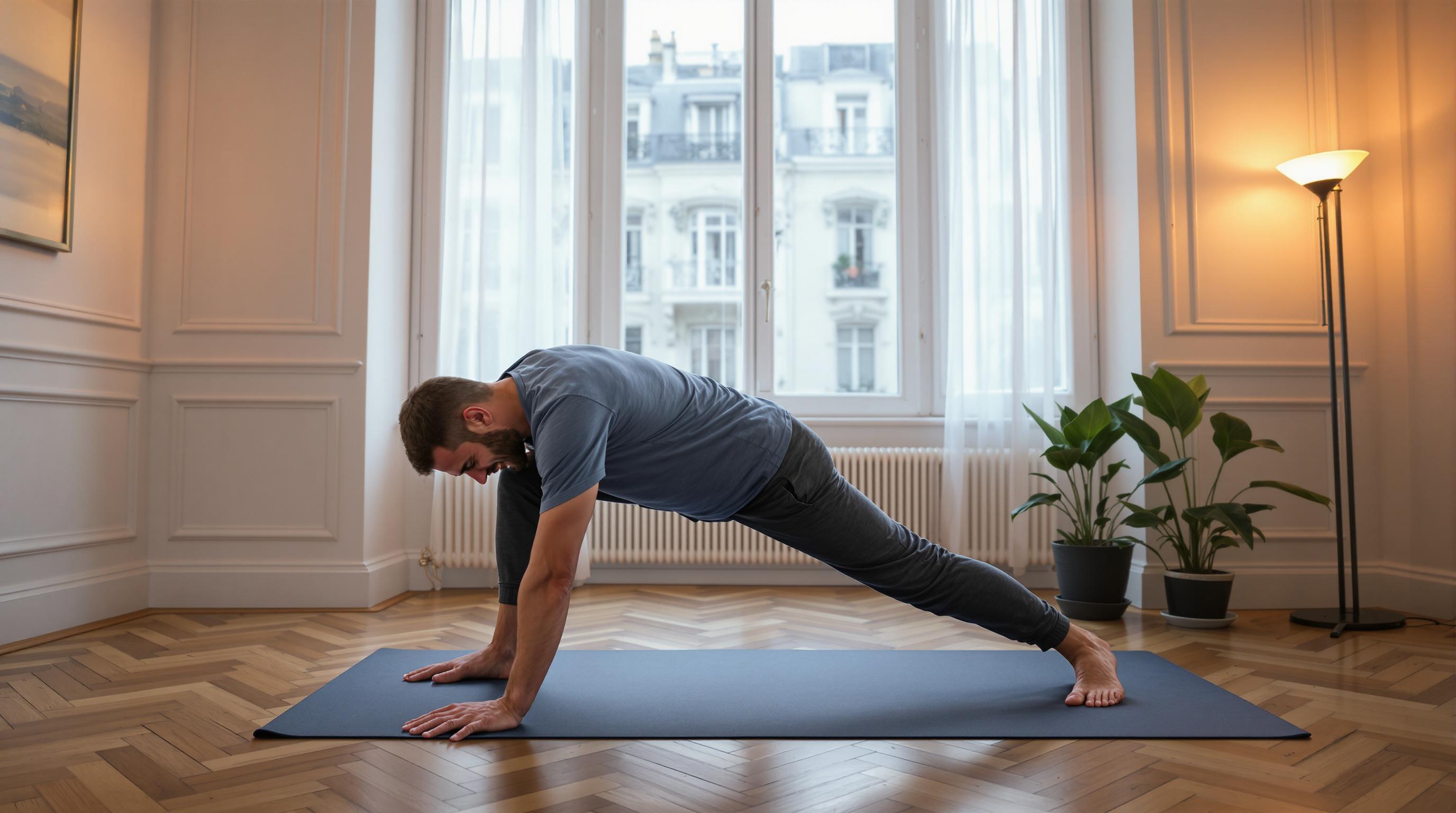Understanding sleep cycles and their impact on health
Sleep cycles consist of distinct stages that play crucial roles in our physical and mental restoration. According to the National Sleep Foundation's research, a complete sleep cycle typically lasts 90-120 minutes, with multiple cycles occurring throughout the night.
Sleep architecture includes two main categories: REM (Rapid Eye Movement) and non-REM sleep. Non-REM sleep comprises three stages: light sleep (N1), deeper sleep (N2), and deep sleep (N3). During N3, also known as slow-wave sleep, the body performs critical restoration processes, including tissue repair, immune system strengthening, and growth hormone release.
The REM stage typically occurs about 90 minutes after falling asleep. This phase is essential for:
- Memory consolidation
- Learning process enhancement
- Emotional regulation
- Brain development
The NSF's comprehensive research indicates that optimal sleep duration varies by age. Adults typically need 7-9 hours of quality sleep, while teenagers require 8-10 hours. Getting adequate sleep across all cycles is crucial for maintaining cognitive function, emotional stability, and physical health.
Studies from the Sleep Health Journal demonstrate that consistent sleep patterns help optimize these cycles. Poor sleep quality or disrupted cycles can lead to various health issues, making it essential to maintain regular sleep schedules and create environments conducive to natural sleep progression.

Common sleep disorders and their consequences
Sleep disorders affect millions of people worldwide, significantly impacting their health and quality of life. According to the National Sleep Foundation's research, between 10-20% of the general population suffers from serious sleep-wake disorders.
Insomnia stands as one of the most prevalent sleep disorders. The Sleep Health Foundation reports that nearly half of adults experience frequent sleep problems, with symptoms including difficulty falling asleep, maintaining sleep, or experiencing non-restorative sleep. Chronic insomnia can lead to decreased cognitive function, mood disorders, and increased risk of accidents.
Sleep apnea represents another serious concern, with research showing that over 6,400 U.S. deaths annually are linked to this condition. This disorder, characterized by repeated breathing interruptions during sleep, can lead to:
- Excessive daytime sleepiness
- Increased risk of cardiovascular problems
- Impaired cognitive function
- Reduced work productivity
Circadian rhythm disorders occur when a person's internal sleep-wake cycle becomes misaligned with their environment. The Sleep Foundation's studies indicate these disorders commonly affect shift workers and individuals who frequently travel across time zones. Symptoms include chronic fatigue, insomnia, and excessive daytime sleepiness.
The economic impact of sleep disorders is substantial. Research from the Sleep Health Foundation reveals that sleep disorders significantly affect workplace performance, with sleep-deprived employees showing:
- 70% higher accident rates
- Decreased decision-making abilities
- Reduced productivity and innovation
Medical experts emphasize that many sleep disorders remain undiagnosed and untreated. The National Sleep Foundation's data shows that nearly one-third of Americans diagnosed with sleep apnea do not receive treatment despite known health risks. This gap in treatment leads to increased healthcare costs and diminished quality of life for affected individuals.

Creating the optimal sleep environment
Your bedroom environment plays a crucial role in achieving quality sleep. According to the Sleep Foundation, several key environmental factors must be optimized to create ideal sleeping conditions.
Temperature is one of the most important elements. Research shows that the optimal bedroom temperature falls between 60 and 67 degrees Fahrenheit (15.6-19.4°C). This range helps facilitate your body's natural temperature decrease during sleep initiation and maintenance.
Darkness is essential for proper sleep. Your bedroom should be as dark as possible to support natural melatonin production. Consider these proven solutions:
- Install blackout shades or curtains to block outside light
- Remove or cover LED displays from electronics
- Use dim red lights for nighttime illumination if needed
Managing noise levels is equally important. The Sleep Foundation recommends maintaining a quiet environment or using consistent background sounds to mask disruptive noises. Options include:
- White noise machines or fans
- Sound machines with nature sounds
- High-quality earplugs for complete silence
Your sleep surface significantly impacts sleep quality. Invest in a supportive mattress and pillows that maintain proper spinal alignment. The ideal firmness varies by sleeping position and body type, but your bedding should allow for comfortable temperature regulation and pressure relief.
Air quality shouldn't be overlooked. Maintain good ventilation and consider using an air purifier to remove allergens and pollutants that could disturb sleep. Regular cleaning of bedding and maintaining moderate humidity levels (between 30-50%) can also enhance sleep quality.
Lifestyle habits for better sleep quality
Adopting the right lifestyle habits is crucial for achieving optimal sleep quality. According to the National Sleep Foundation, maintaining consistent daily routines significantly impacts our sleep-wake cycle.
Exercise plays a vital role in promoting better sleep, but timing is essential. Regular physical activity, particularly 30 minutes of moderate exercise five days a week, helps regulate sleep patterns. However, avoid vigorous exercise within 2-3 hours before bedtime as it can interfere with falling asleep.
Dietary choices significantly influence sleep quality. The National Sleep Foundation recommends:
- Finishing meals 2-3 hours before bedtime to allow proper digestion
- Maintaining consistent meal times throughout the day
- Avoiding heavy, spicy, or acidic foods in the evening
- Limiting fluid intake before bed to prevent nighttime awakening
Caffeine management is crucial for sleep health. Research shows that caffeine can remain active in your system for up to 8 hours. Consider limiting caffeinated beverages after 2 PM, and be mindful that chocolate and some sodas also contain caffeine.
Establishing a relaxing evening routine helps signal your body it's time to sleep. The Sleep Foundation recommends:
- Setting consistent sleep and wake times, even on weekends
- Creating a 30-60 minute wind-down period before bed
- Engaging in calming activities like reading or gentle stretching
- Avoiding alcohol and nicotine close to bedtime, as they can disrupt sleep patterns
For optimal sleep health, maintain regular daytime exposure to natural light, as this helps regulate your body's internal clock. Remember that these lifestyle adjustments may take several weeks to show significant improvements in sleep quality, so consistency is key.
Technology and sleep integrating modern solutions
While technology can disrupt sleep patterns, particularly through blue light exposure from screens, it also offers innovative solutions for improving sleep quality. The National Sleep Foundation has endorsed several technological approaches to help monitor and enhance sleep.
Modern sleep tracking devices and wearables can provide valuable insights into sleep patterns. According to sleep research foundations, these devices can measure important metrics like sleep duration, sleep cycles, and even identify potential sleep disorders. The Consumer Technology Association and National Sleep Foundation have developed specific standards for sleep monitoring technology to ensure accuracy and reliability.
To combat the negative effects of technology, experts recommend:
- Using blue light filtering apps and settings on devices
- Setting automated "wind-down" reminders before bedtime
- Utilizing white noise or nature sound apps for better sleep environment
- Following the "one-hour rule" - avoiding screens 60 minutes before bed
Sleep foundations are increasingly recognizing evidence-based digital solutions like cognitive behavioral therapy apps for insomnia (CBT-I). These digital interventions have shown promising results in improving sleep quality when used consistently. The Sleep Foundation's SleepTech program specifically evaluates and recognizes innovative sleep technology products that meet rigorous standards for sleep improvement.
Professional sleep treatment options and resources
When sleep issues persist, professional medical intervention becomes essential. The National Sleep Foundation recommends consulting sleep specialists for comprehensive evaluation through sleep studies, which monitor vital signs, brain activity, and sleep patterns.
Treatment options typically include:
- Cognitive Behavioral Therapy for Insomnia (CBT-I)
- Medical devices for sleep apnea
- Prescription medications when appropriate
- Specialized sleep clinic programs
The Sleep Foundation's accredited medical education programs ensure physicians stay current with the latest treatment protocols. Their Sleep Learning Zone platform provides continuing education for healthcare professionals, while sleep centers offer specialized diagnostic services and personalized treatment plans.
Consider seeking professional help if you experience persistent insomnia, excessive daytime sleepiness, or breathing difficulties during sleep. Many sleep disorders are treatable through evidence-based interventions provided by certified sleep specialists.
